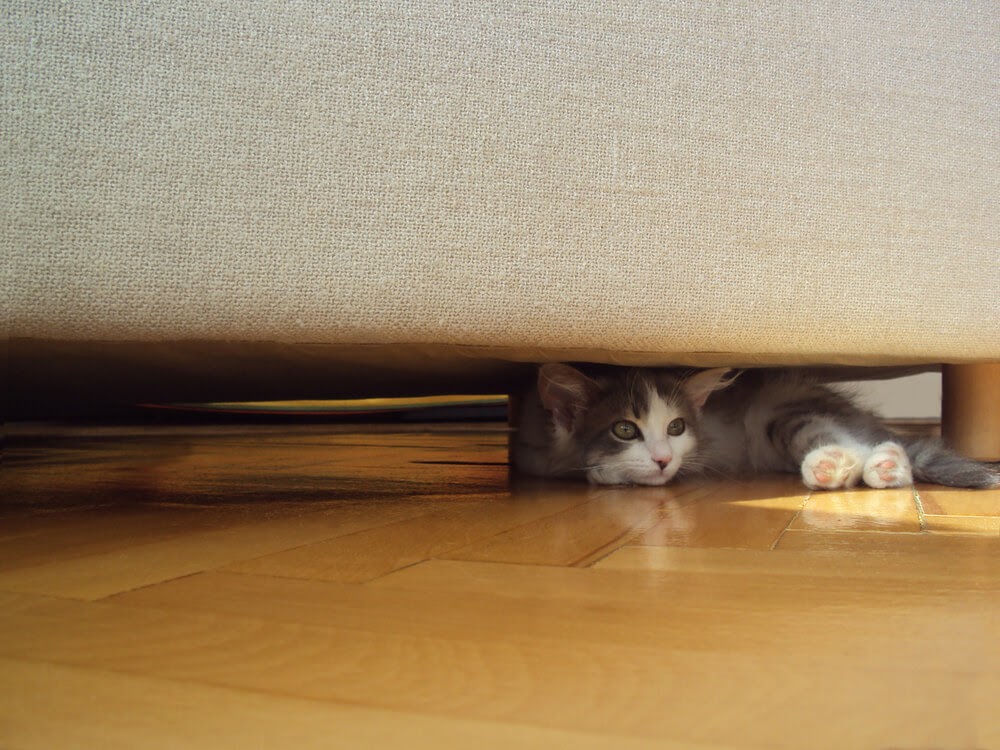Cats are animals that like to hide, even if they don’t always do it for fun or in search of tranquility. Some situations can upset your cat, such as causing stress, such as the arrival of strangers at home.
It won’t always be possible to know why the cat hides when someone new comes, especially if your cat has been adopted, but there are ways to help him overcome fear, stress and even encourage him to want to meet new people, always respecting emotional well-being and making sure he makes a positive presentation. In this peritoAnimal article we explain why the cat hides when people come and we give you some guidelines that you can apply yourself. Read!
- Although they are especially sociable.
- All cats occasionally hide in search of tranquility.
- That’s why we recommend that the feline have a safe area that he can go to whenever he needs to take refuge.
- A private place where no one bothers him.
However, there are other causes that can cause a cat to hide
To find out why your cat is hiding, you should watch it carefully and notice the body language it shows at all times, even when other people are not present. This will help you really understand what your cat’s personality is like and what he likes best, as well as things your little one doesn’t like or scare. By paying more attention to their behavior, you’ll be able to more easily detect if there is a disease, the presence of parasites or something that bothers you. You may find, for example, that your cat is afraid of the sound of plastic, the male voice or excessive noise (very common fears of cats).
When our cat is hidden, for example in the closet, don’t bother him. On the contrary, we must offer him something to help him hide. The fact that he can take refuge reduces stress and the cat feels better. Some cats prefer to go to the closet, others hide in drawers or even under the bed.
You must act normally, trying not to make unnecessary noises that may frighten the cat, or constantly asking it to come. The goal is for the cat to leave just because he feels safe at home.
Checking if you are fulfilling the 5 freedoms of animal welfare is essential before you start working to socialize your cat with people. Remember that in some cases it may take time, you should be patient.
The goal is to get your cat to associate people with something positive and for that the Animal Expert has some tips:
Following these tips, you will observe the most active and curious cat, which will make it easier for you to strengthen the positive behaviors that may arise: enter the room, feel one of the guests or let yourself be caressed in the presence of strangers.
We can reward the behaviors we love in many ways, it is not only about offering a tasty price: a love and a word of a higher tone, can also satisfy the feline and make it feel appreciated.
At the beginning of this process some points can be reinforced because the cat is inhibited but over time it will be easier to observe that new behaviors appear. It’s a long process, but if you don’t force your best friend and earn your trust, there’s a good chance the day will come when it doesn’t hide when someone comes to visit the house.
In the most severe cases, for example, when the cat suffers from a phobia or sensory deprivation syndrome, it is advisable to go to an ethologist, a veterinarian specialized in animal behavior and feline psychology.
If you would like to read articles similar to, we recommend that you visit our Behavioral Problems section.

